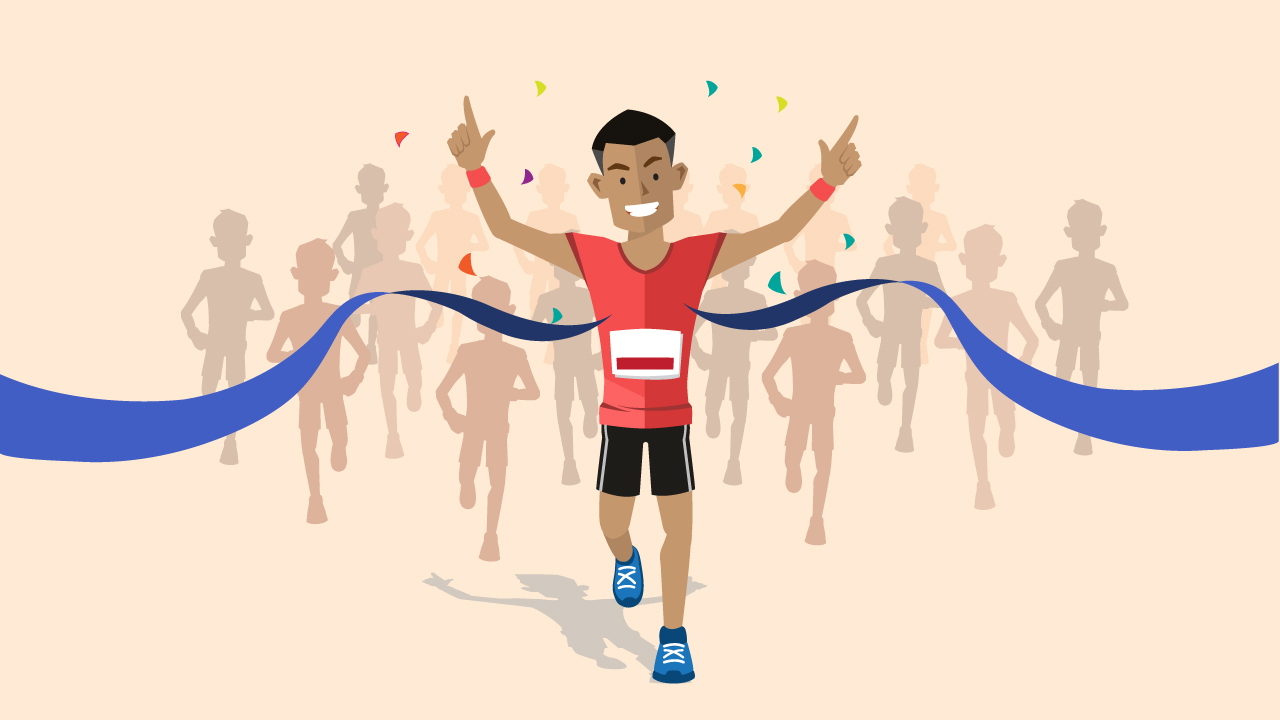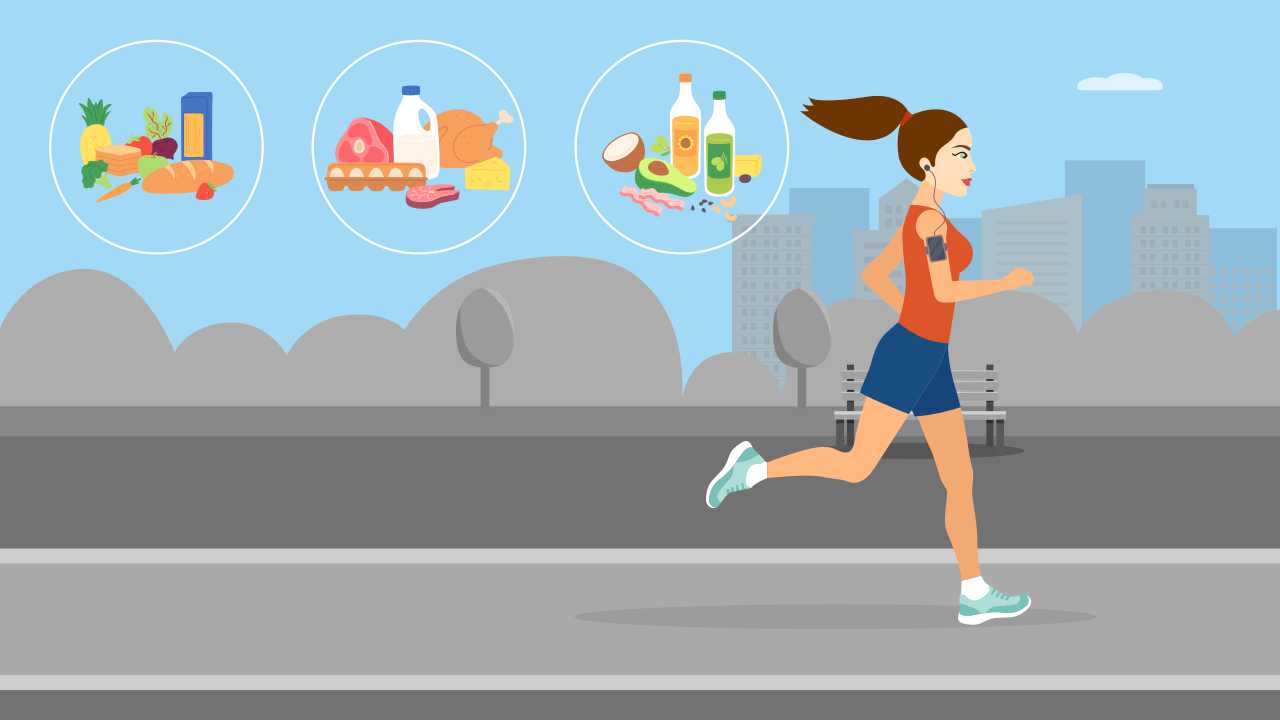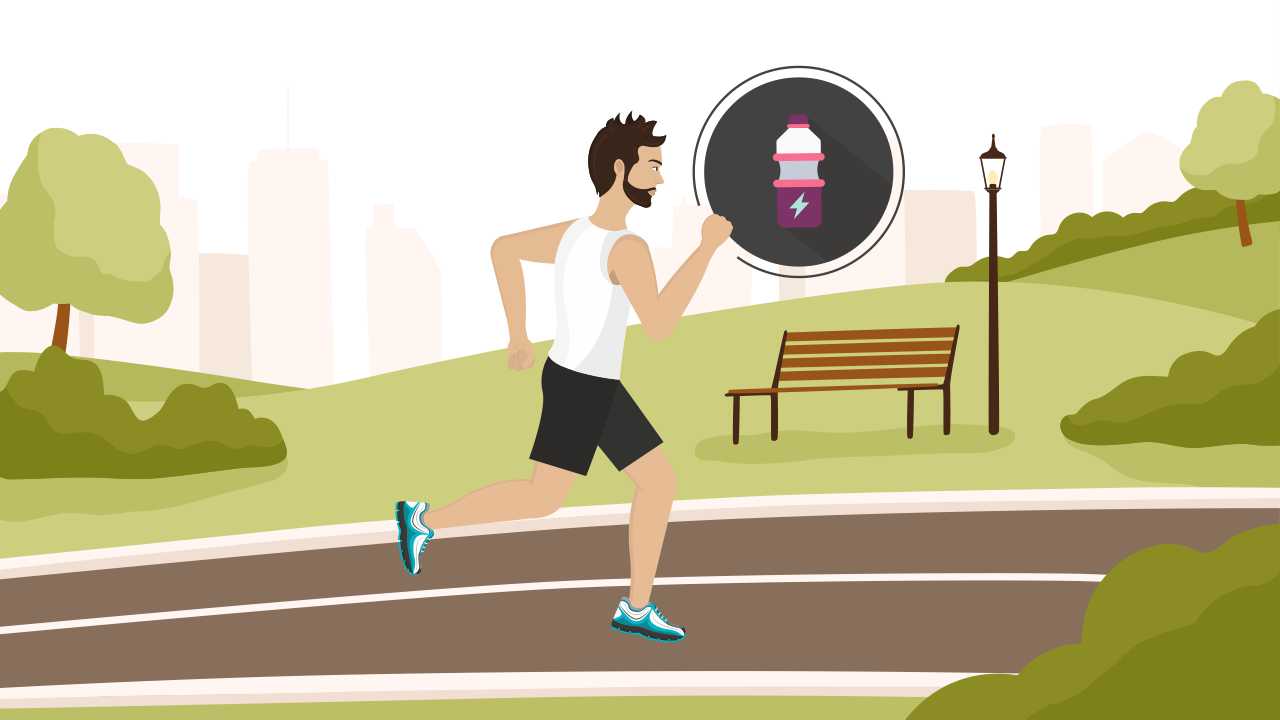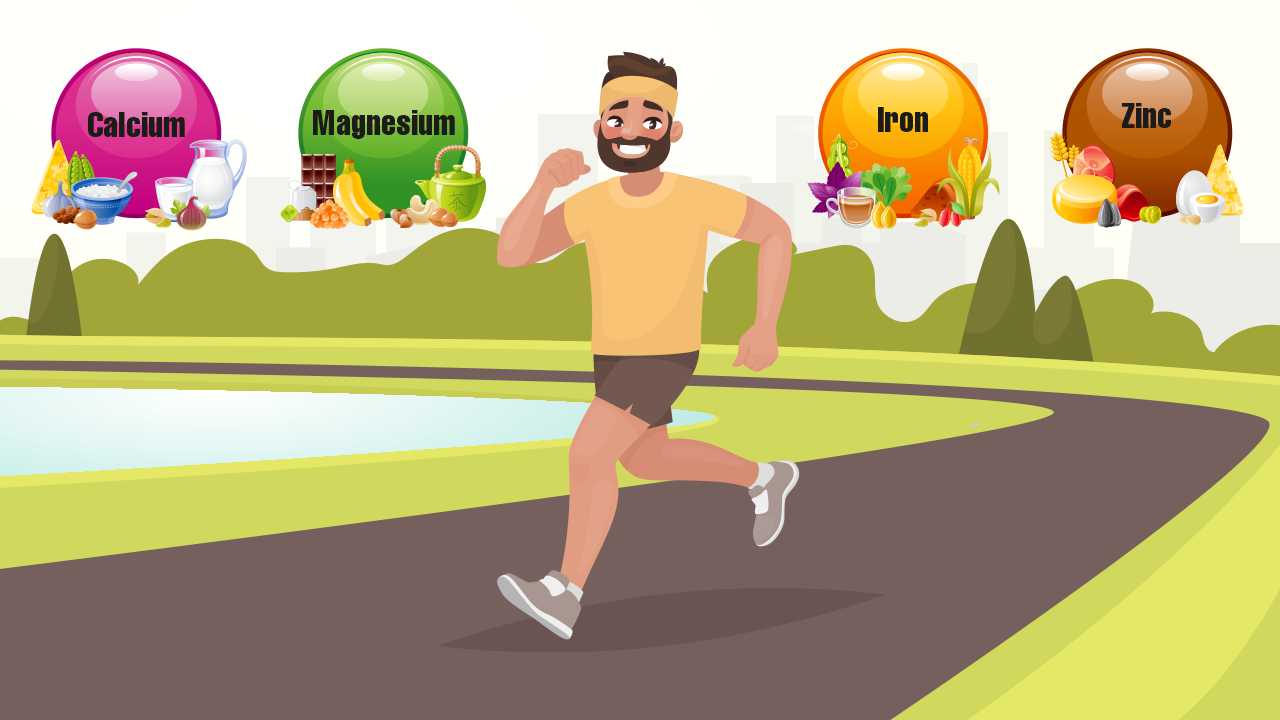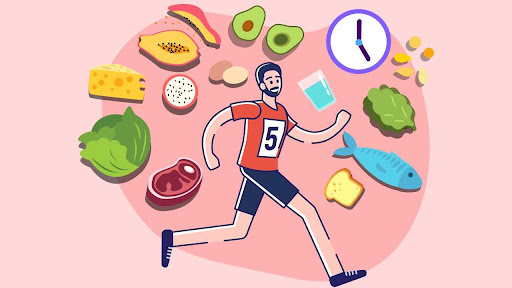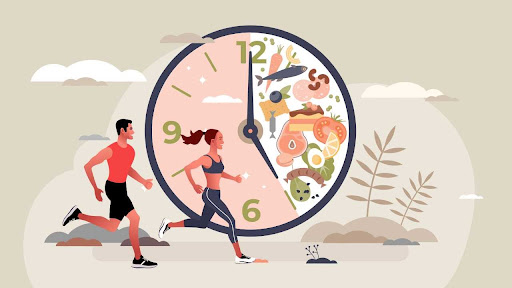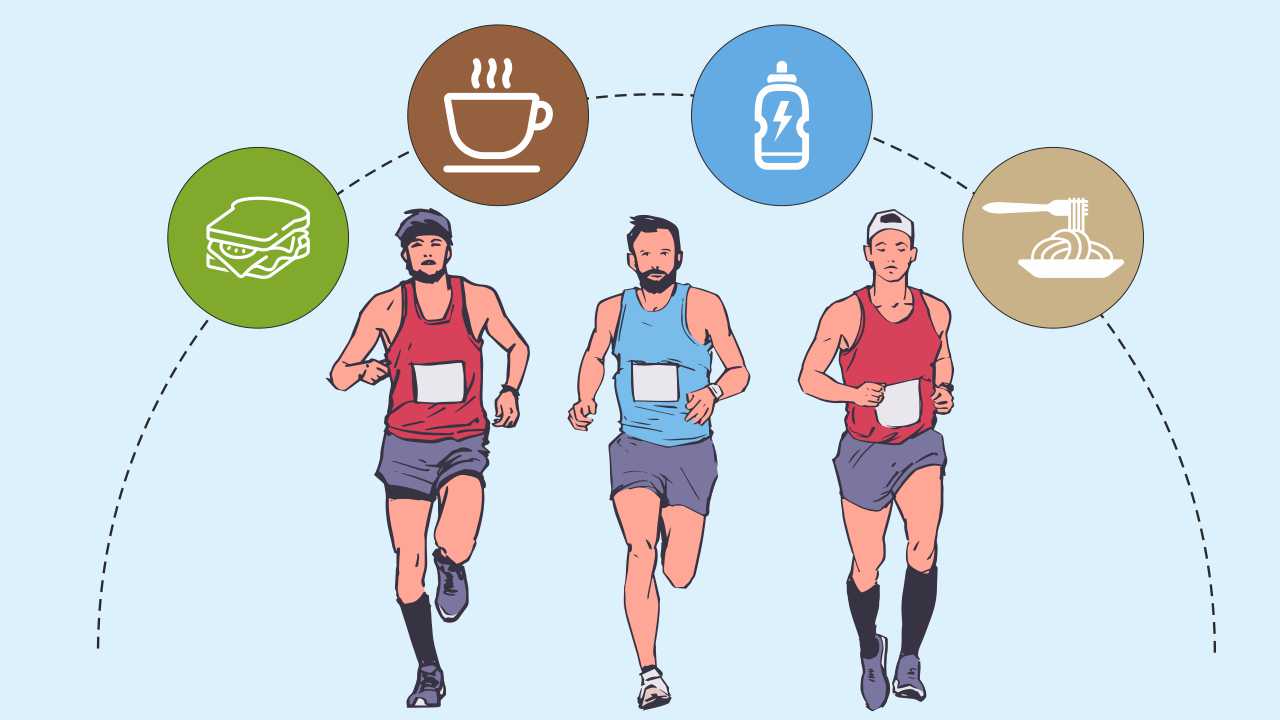
How Can Nutrition Help Manage Muscle Soreness?
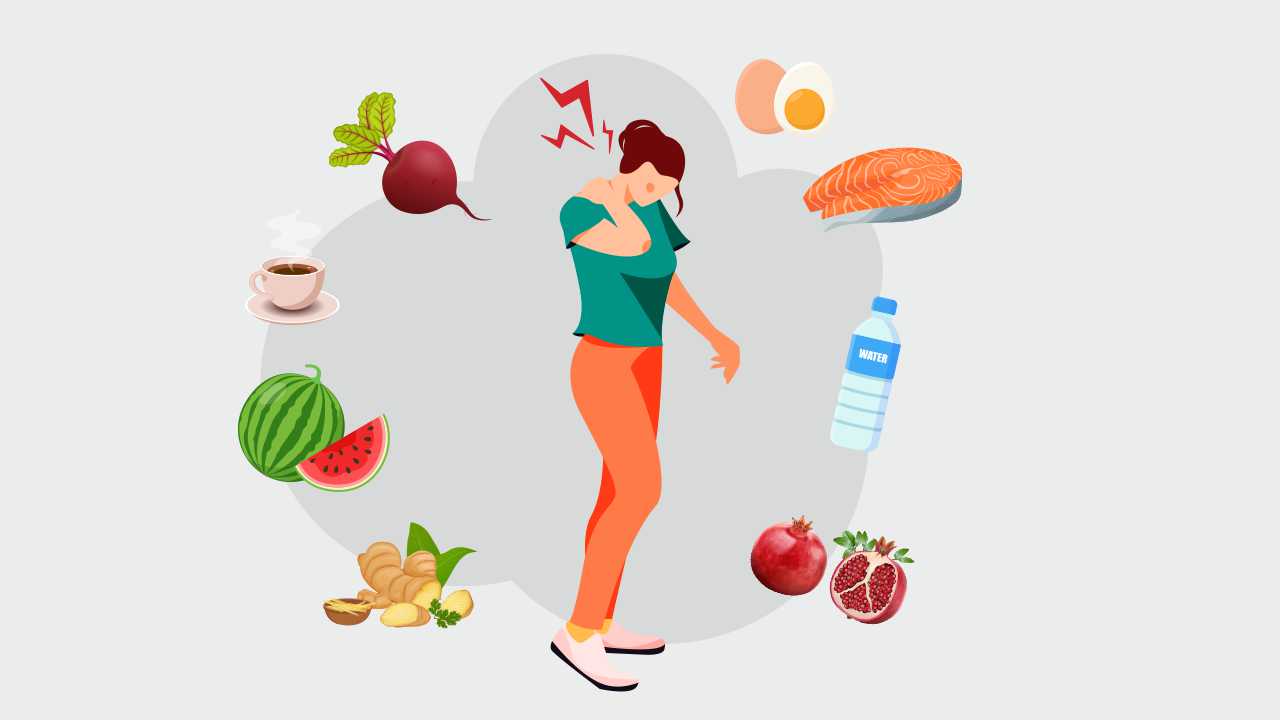
If you are struggling to climb a flight of stairs or wincing while sitting down the day after a hard workout session, chances are you are experiencing pain brought on by Delayed Onset Muscle Soreness (DOMS).
You must have heard the saying “no pain, no gain”. However, it doesn’t necessarily hold true for workouts. You don’t need to constantly be in pain to achieve desired fitness goals. While muscle soreness is an unavoidable part of the muscle-building process, eating the right foods may help you minimize DOMS and enable you to get back to your exercise routine.
What is DOMS?
Usually, DOMS happens 24 to 48 hours after a session of strenuous physical exercise. It is experienced by professional athletes and novice fitness enthusiasts. Starting a new exercise regimen or increasing the duration or intensity of your regular workout can cause microscopic damage to your muscle fibers and connective tissue.
DOMS is more common after a workout that focuses on eccentric muscle contractions, which involve lengthening the muscle against resistance. The symptoms are the result of the inflammation caused by the body’s healing response to these microscopic injuries
DOMS subsides naturally anywhere within seven days of its onset, and you become free to move about without any pain. However, you can easily speed up this process by eating the right foods, which can either reduce DOMS or prevent it from developing.
Also read: DOMS: What to Know About Delayed Onset Muscle Soreness
What can you eat to reduce DOMS?
Here are a few recommended items that you may consume to lower DOMS:
1. Beetroot
Packed with complex carbs and antioxidants like betalain (the compound, which gives it the blood-red color), beetroot can decrease inflammation and promote muscle regeneration. According to a study published in the European Journal of Applied Physiology, drinking a glass (250ml) of beetroot juice for three days after an intense workout may allow you to quickly resume your training pain-free.
2. Coffee
Coffee owes its energizing and pain-relieving properties to its active compound, caffeine. Research has shown that consuming caffeine one hour before and a day after working out may reduce muscle soreness by up to 50%. So, drinking one to two cups (250ml to 500ml) of black coffee on the day of a heavy workout may help you overcome the pain and exhaustion associated with DOMS.
3. Cottage cheese and eggs
Cottage cheese (paneer) and eggs are concentrated sources of high-quality protein. These high-quality proteins, especially casein and whey proteins present in paneer, are proven to fast-track muscle repair and recovery from pain. Both these foods are also packed with leucine, which is a Branched-chain Amino Acid (BCAA) that promotes muscle growth and reduces pain by enhancing muscle fiber recovery. Eating a block (100g) of fresh paneer or two to three boiled egg whites after a strenuous workout is a quick and easy way to reduce the effects of DOMS.
4. Oily fish
Oily fishes like salmon and tuna contain high-quality protein and have an abundance of omega-3 fatty acids, which are extremely effective in reducing inflammation. Some studies suggest that taking 2g to 3g of omega-3 fatty acids after a heavy workout may lower the pain and stiffness of DOMS. Eating a salmon fillet (94g) in your post-workout meal can provide you with that many omega-3 fatty acids.
5. Turkey
Other than being a source of high-quality protein, turkey also contains taurine, which is a non-essential amino acid present in high levels. While most amino acids are used for muscle repair, taurine mainly acts as an antioxidant. Research suggests that a daily intake of 2g taurine may help reduce muscle soreness by decreasing oxidative stress in the muscles. Eating a cup (232g) of turkey will provide you with nearly a gram of this antioxidant amino acid. Other good sources of taurine include red meat and shellfish such as scallops, mussels, and clams.
6. Turmeric
This golden spice is present in practically every Indian kitchen. It has been known to have pain-relieving power thanks to its active component, curcumin. Research findings published in the European Journal of Applied Physiology have shown that curcumin may reduce the pain associated with DOMS between 24 to 48 hours after a workout. So, include traditional Indian recipes that contain turmeric (haldi) or a glass of warm turmeric milk (haldi doodh) as your post-workout snack.
7. Watermelon
L-citrulline — the key amino acid in watermelon — has been shown to improve muscle function and soothe muscle pain. As the name suggests, watermelon is mostly made of water (92%). So, having it after a workout can rehydrate the body and potentially prevent dehydration-related muscle cramps. Research indicates that drinking two glasses (500ml) of watermelon juice one hour before an intense training session may improve muscle soreness within 24 hours.
What can you consume to prevent DOMS in the future?
You may eat these items to avert DOMS:
1. Ginger
Did you know that ginger has anti-inflammatory properties similar to aspirin? Its active component, gingerol, is responsible for its characteristic zing and its ability to reduce inflammation. According to a study published in The Journal of Pain, eating a teaspoon (2g) of ginger regularly for 11 days may lower your chances of missing out on exercise due to muscle pain.
2. Pomegranate
Pomegranate is considered a superfood due to its notably high content of antioxidants and polyphenols, which are known for their anti-inflammatory properties. Drinking a glass (250ml) of pomegranate juice twice a day for two weeks has been shown to enhance physical performance, improve strength recovery, and reduce muscle soreness during the early stages of new exercise regimens.
3. Water
Scientific evidence suggests that dehydration can negatively affect exercise performance and aggravate the symptoms of DOMS, especially in hot weather. This is because dehydration causes your heart to work harder to pump blood and oxygen to your muscles and remove metabolic waste from them. Rehydration has been shown to reduce muscle stiffness and improve performance in subsequent workouts. So, make sure to replace the water lost in sweat during your workout. Drinking half to one glass (125ml to 250ml) of water every 10 to 20 minutes during workout and two to three glasses (500ml to 750ml) of water after training may ward off dehydration.
Also read: How Does Nutrition Help in Exercise Recovery?
The four ‘Rs’ of managing DOMS
Even though DOMS is an indication of the repair and recovery of your muscles, you need not necessarily have to give the pain more importance and stop working out. To avoid skipping a single day of exercise, remember the four ‘Rs’ of managing DOMS. These are:
1. Re-energize
Eat sufficient amounts of complex carbohydrate-rich foods after exercising to re-energize your body and drive protein into your muscles.
2. Repair
Have foods with high-quality proteins and amino acids that are essential for your muscle repair.
3. Rehydrate
Drink two to three glasses (500ml to 750ml) of water and eat electrolytes-rich foods to rehydrate your body after a sweaty workout.
4. Revive
Include plant-based foods containing vitamins, minerals, and other non-essential nutrients in your pre- and post-workout snacks and meals to revive your muscles faster for the next workout session.
Now that you know how to handle muscle soreness naturally with the help of foods, take corrective measures when you face the problem of DOMS.
References
1. Kim J, Lee J. A review of nutritional intervention on delayed onset muscle soreness. Part I. J Exerc Rehabil 2014; 10: 349-56.
2. Harty PS, Cottet ML, Malloy JK, et al. Nutritional and Supplementation Strategies to Prevent and Attenuate Exercise-Induced Muscle Damage: a Brief Review. Sports Med Open 2019; 5: 1.
3. Clifford T, Bell O, West DJ, et al. The effects of beetroot juice supplementation on indices of muscle damage following eccentric exercise. Eur J Appl Physiol 2016; 116: 353-62.
4. Hurley CF, Hatfield DL, Riebe DA. The effect of caffeine ingestion on delayed onset muscle soreness. J Strength Cond Res 2013; 27: 3101-9.
5. Ra SG, Miyazaki T, Ishikura K, et al. Combined effect of branched-chain amino acids and taurine supplementation on delayed onset muscle soreness and muscle damage in high-intensity eccentric exercise. J Int Soc Sports Nutr 2013; 10: 51.
6. Paulussen K, Salvador A, McKenna C, et al. Effects of Salmon Ingestion on Post-Exercise Muscle Protein Synthesis: Exploration of Whole Protein Foods Versus Isolated Nutrients. Curr Dev Nutr 2020; 4: 650.
7. McLeay Y, Stannard S, Barnes M. The Effect of Taurine on the Recovery from Eccentric Exercise-Induced Muscle Damage in Males. Antioxidants (Basel) 2017; 6: 79.
8. Nicol LM, Rowlands DS, Fazakerly R, et al. Curcumin supplementation likely attenuates delayed onset muscle soreness (DOMS). Eur J Appl Physiol 2015; 115: 1769-77.
9. Tarazona-Díaz MP, Alacid F, Carrasco M, et al. Watermelon juice: potential functional drink for sore muscle relief in athletes. J Agric Food Chem 2013; 61: 7522-8.
10. Black CD, Herring MP, Hurley DJ, O’Connor PJ. Ginger (Zingiber officinale) reduces muscle pain caused by eccentric exercise. J Pain 2010; 11: 894-903.
11. Trombold JR, Reinfeld AS, Casler JR, et al. The effect of pomegranate juice supplementation on strength and soreness after eccentric exercise. J Strength Cond Res 2011; 25: 1782-8.
12. Cleary MA, Sweeney LA, Kendrick ZV, et al. Dehydration and symptoms of delayed-onset muscle soreness in hyperthermic males. J Athl Train 2005; 40: 288-297.

